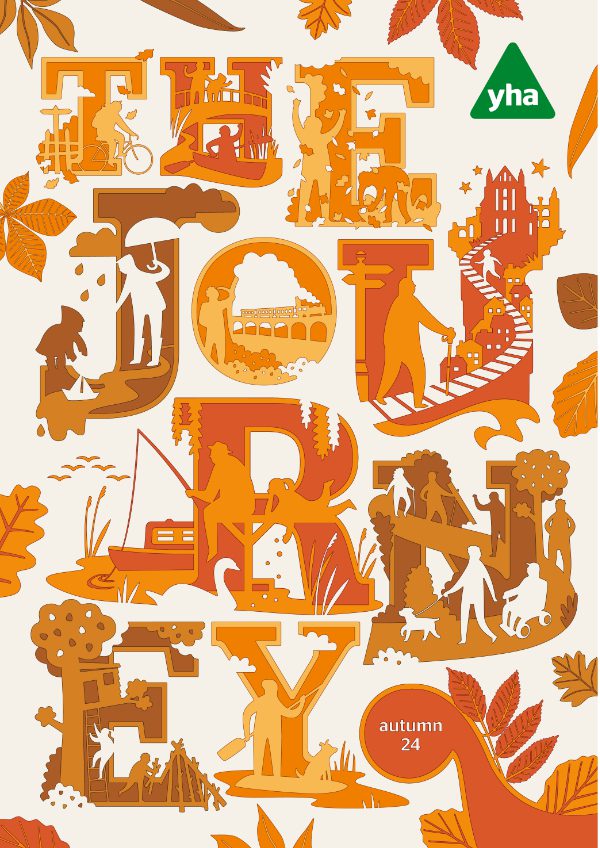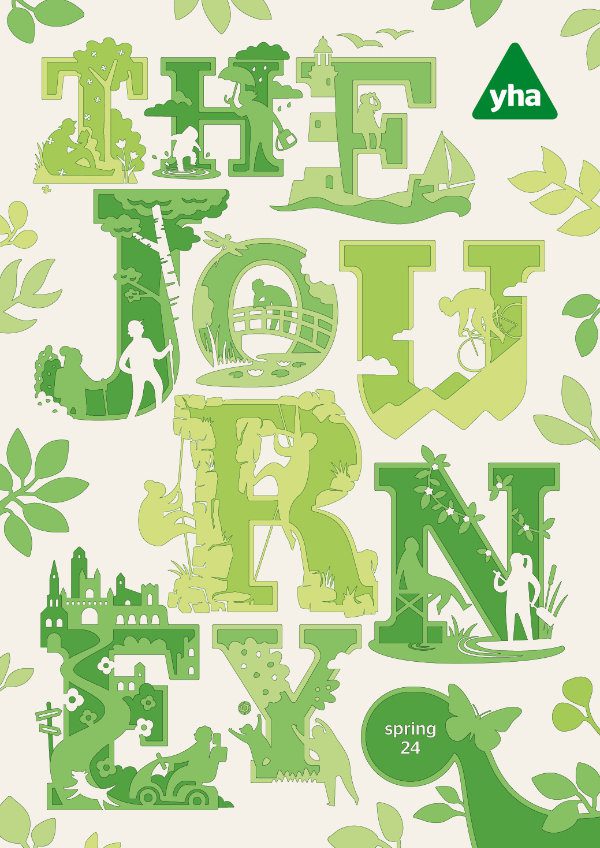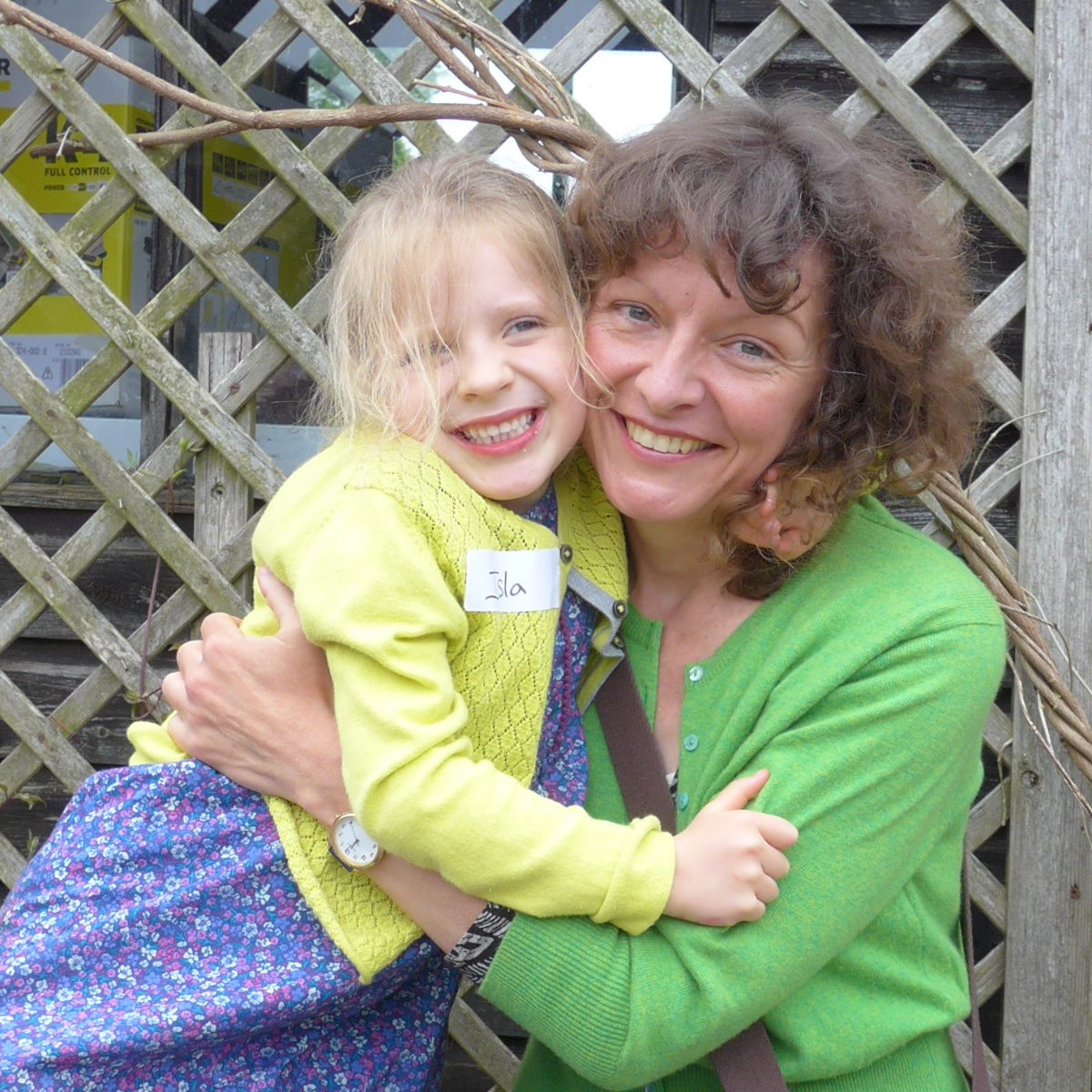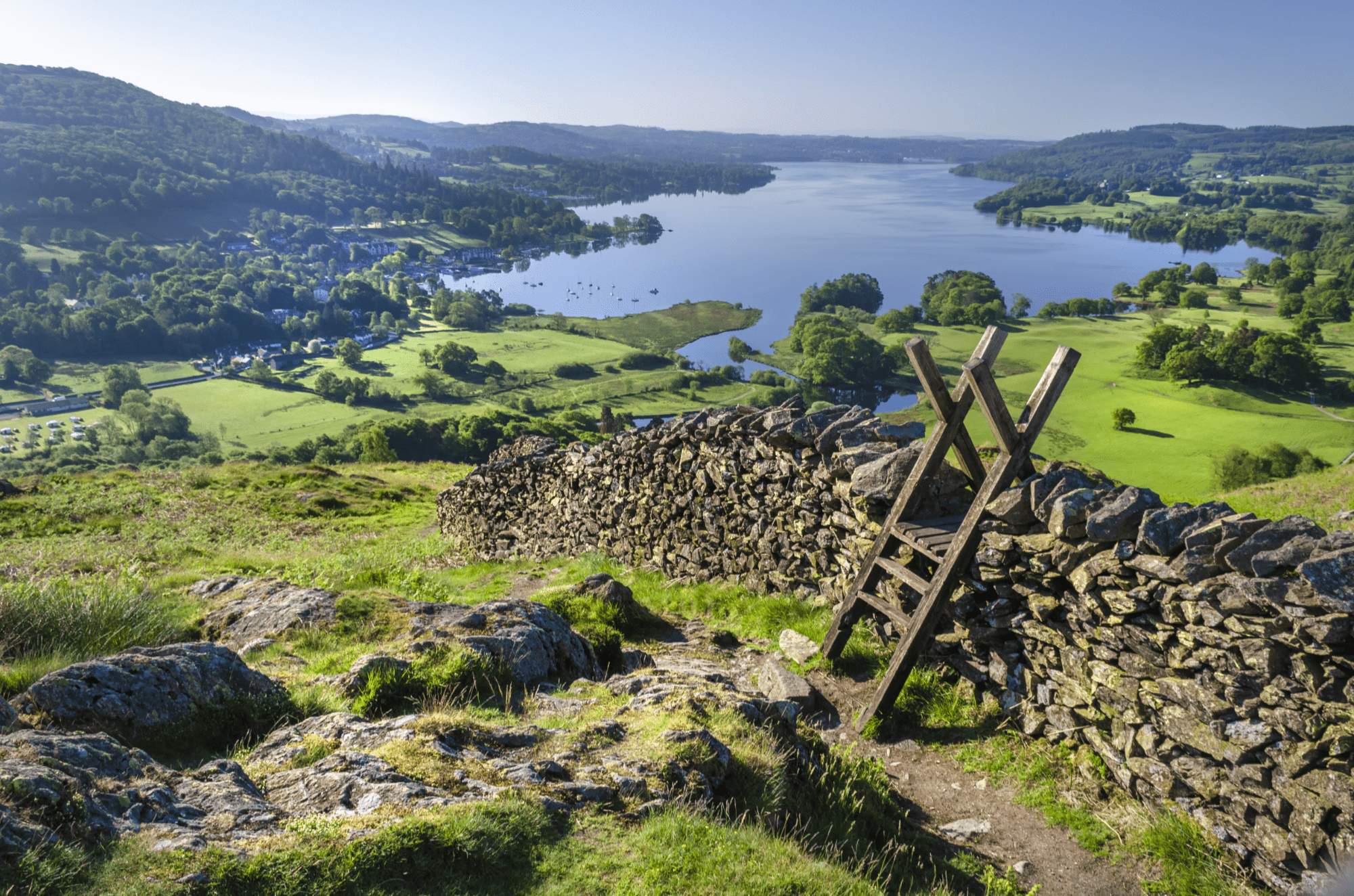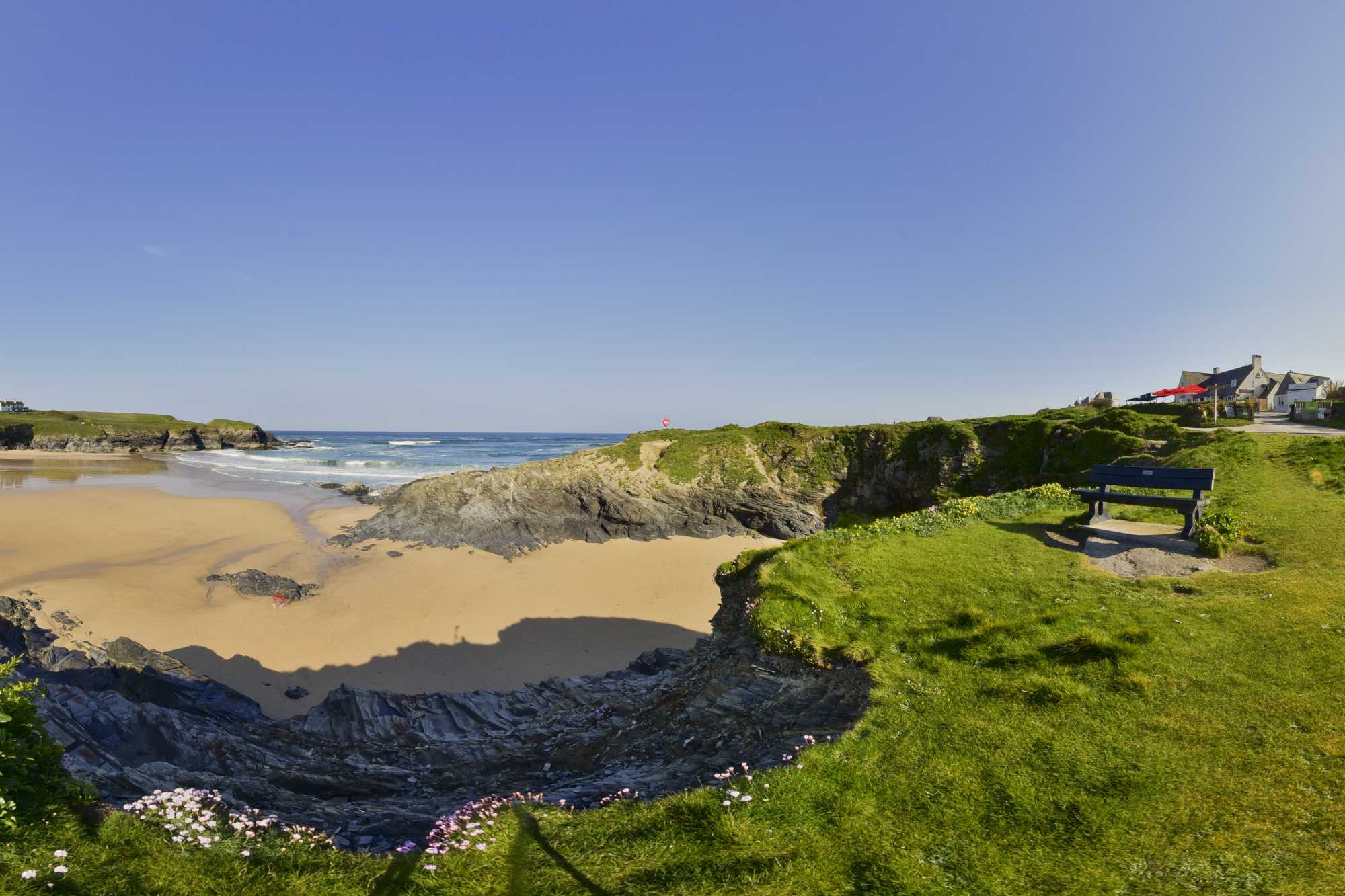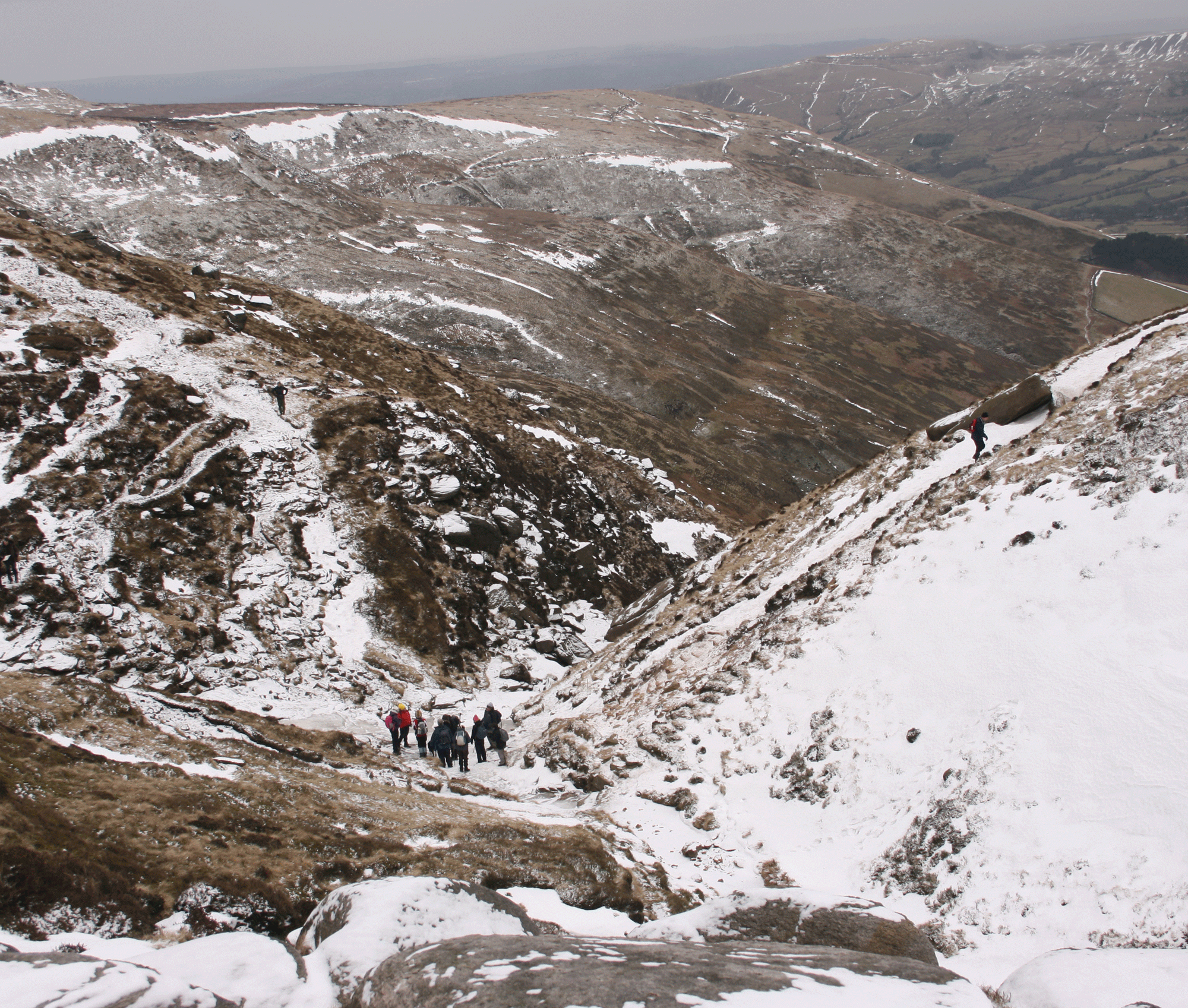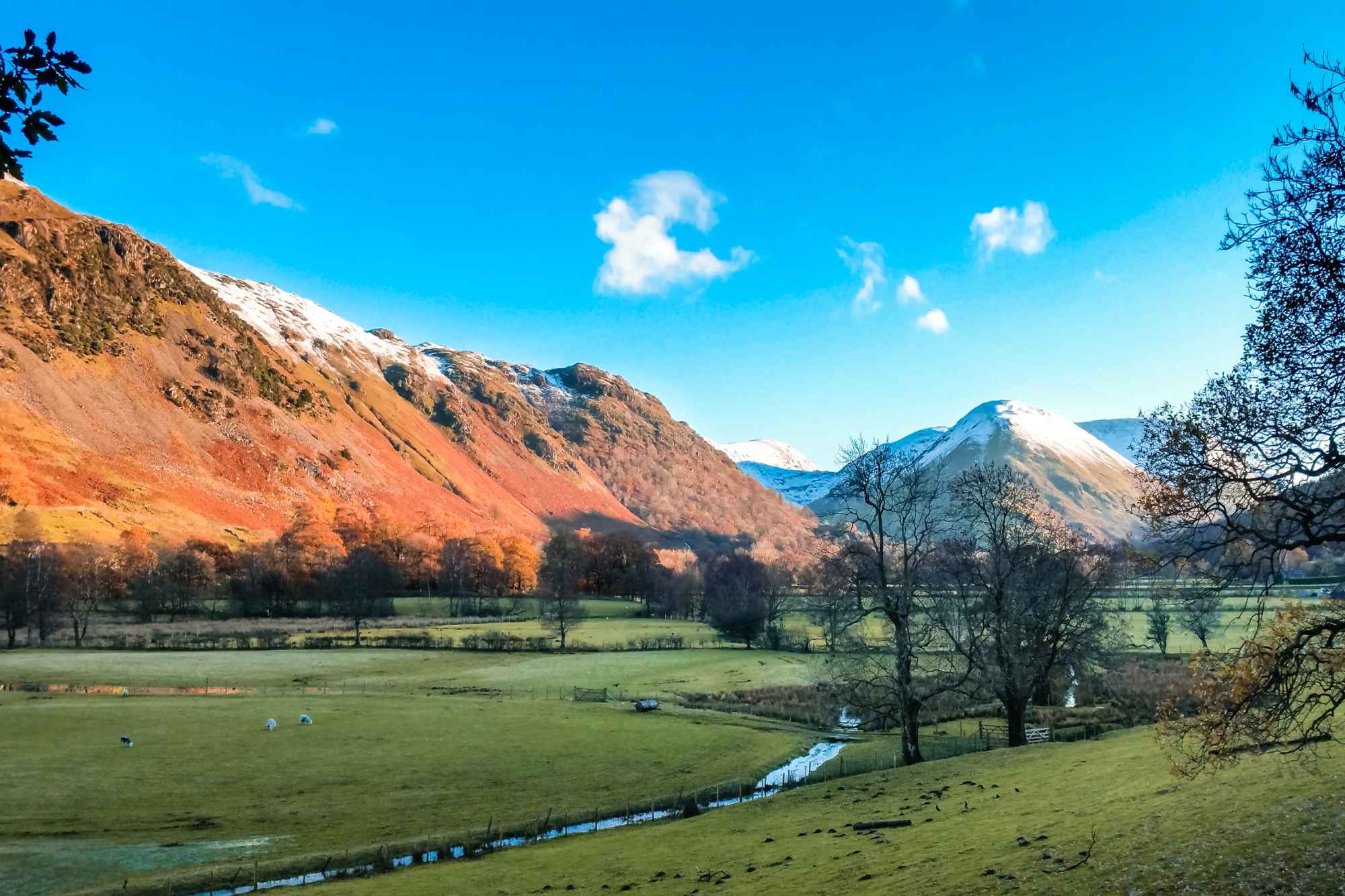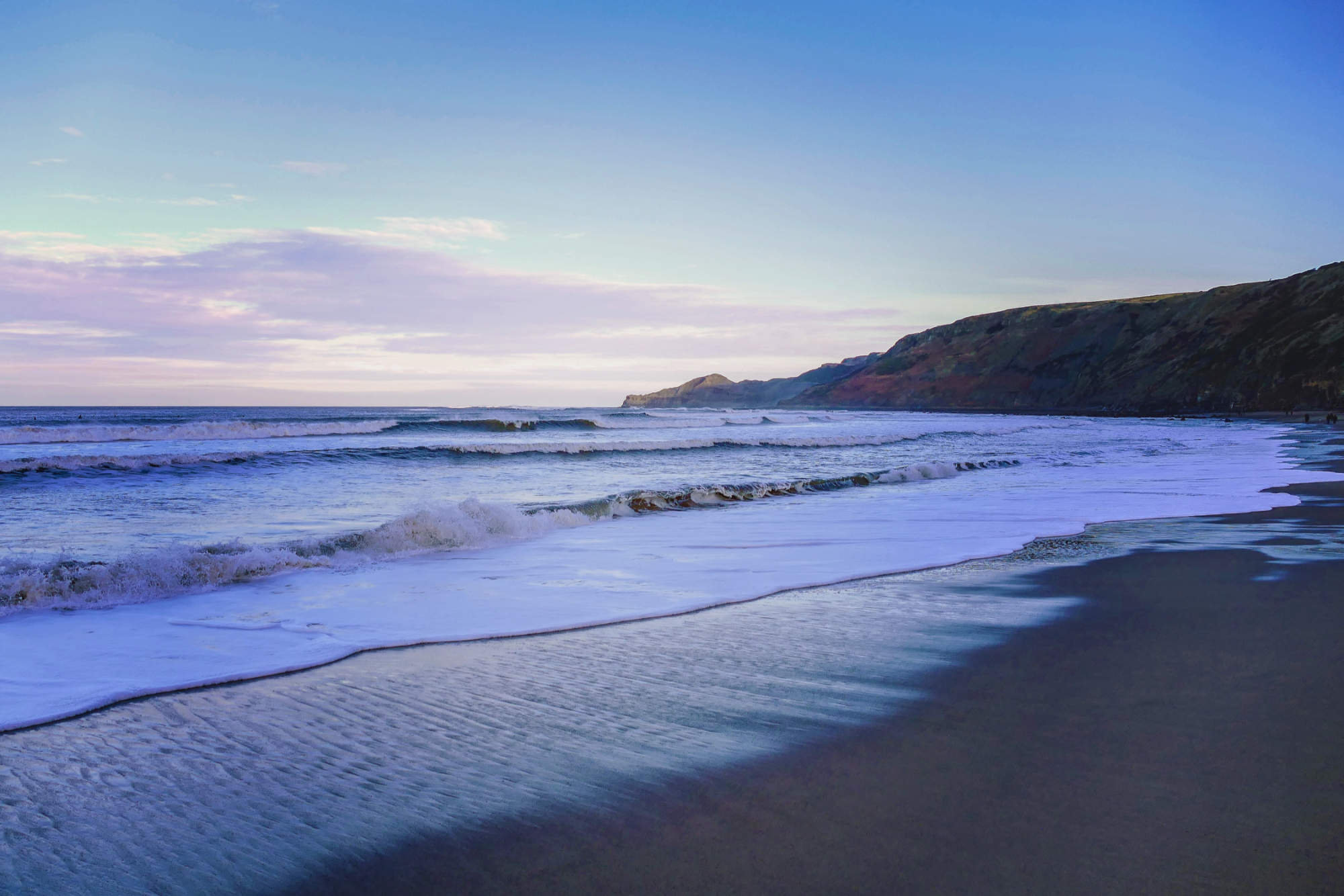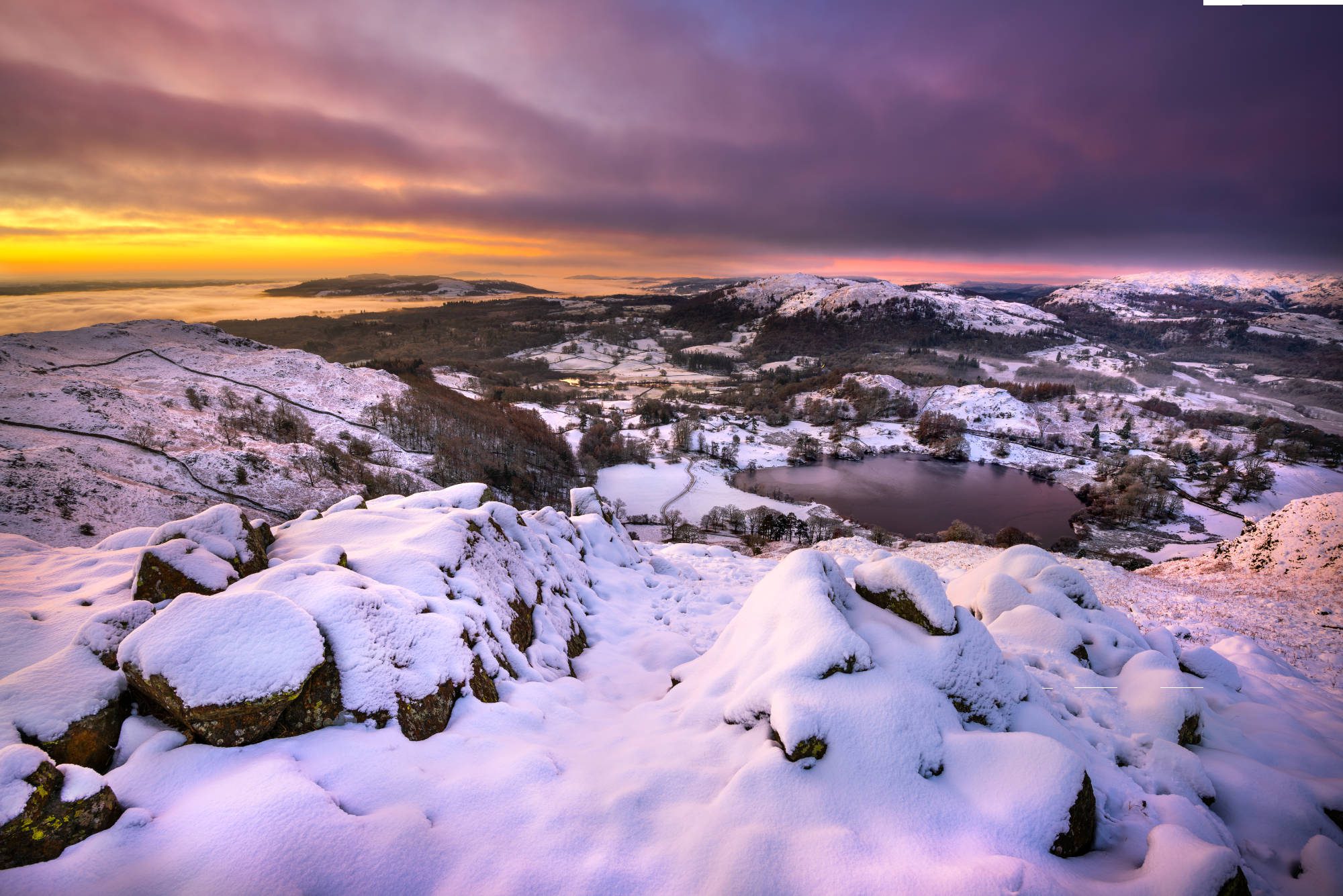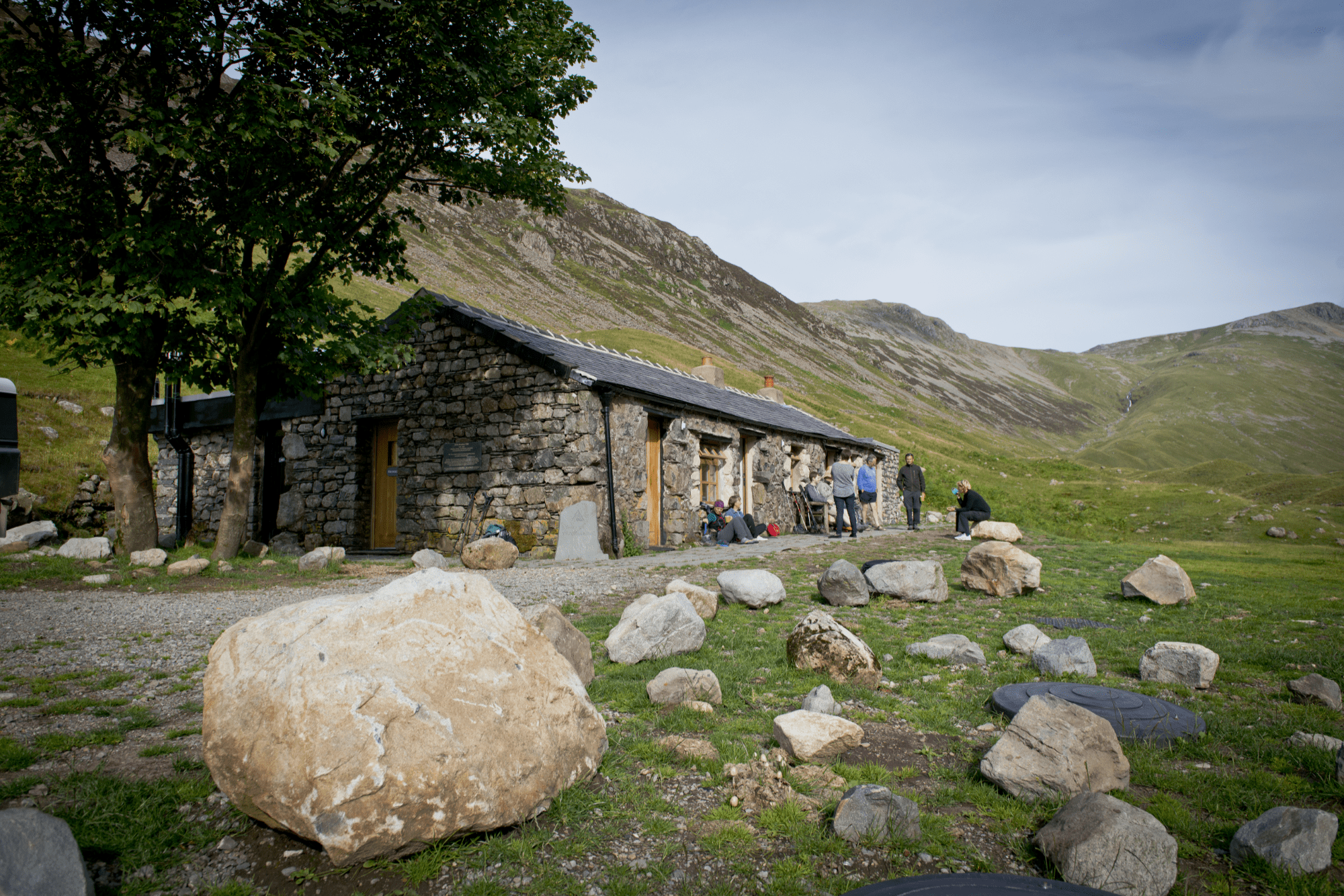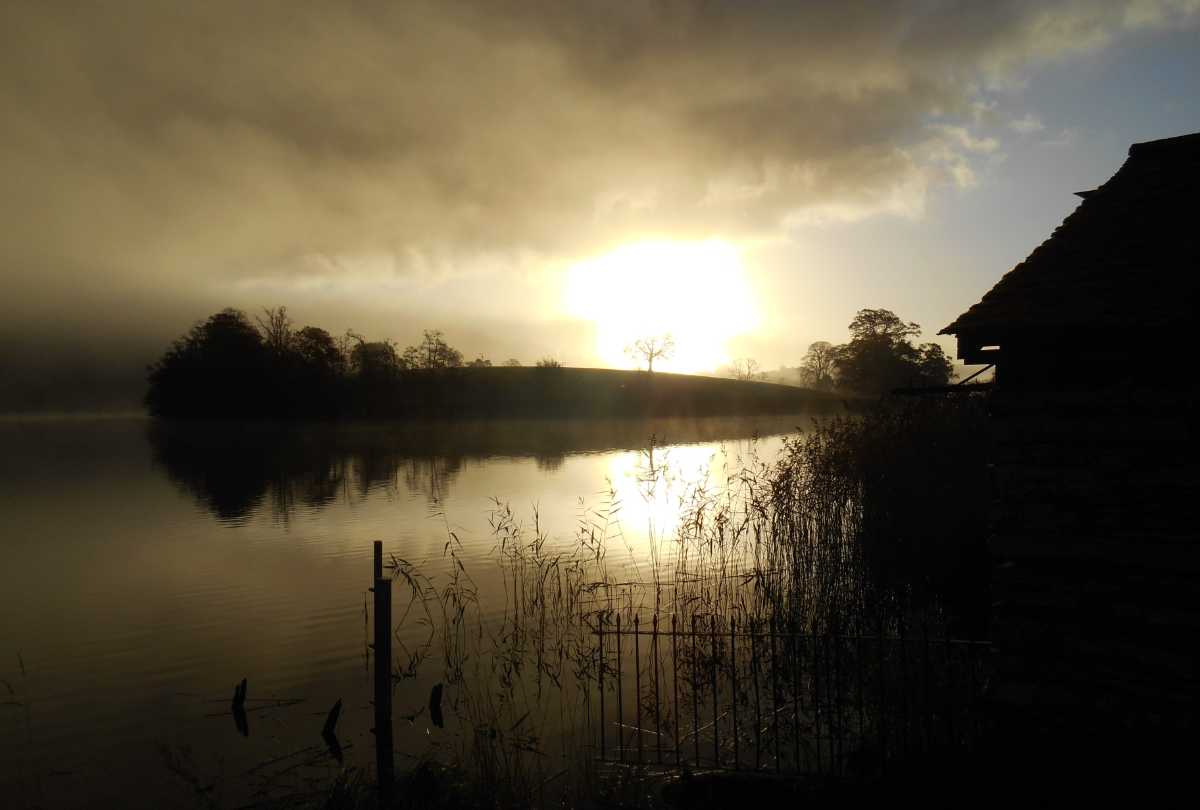I did miss the self-catering kitchen, as much for the opportunities for interesting chat as for a hob on which to heat baked beans and rice pudding. But the warm welcome from YHA staff was just the same, and that was by far the most important thing. Like many families, we didn’t have the summer holiday we had planned this year … but we still had a brilliant and memorable time.
My heart sank in mid-June when I got the cancellation emails saying the hostels we’d booked were now YHA Exclusive Hire only, because they didn’t have the space and facilities to enable social distancing. Our two children hadn’t been at school since mid-March and we were really looking forward to a change of scene as lockdown lifted. I had been feeling quite pleased with myself that for once I’d organised our holiday well in advance, way back in January. Now I had to have a rethink.
A quick scan of the YHA website showed that there were still more than 30 hostels accepting individual and small group bookings. We decided to return to a place we all loved — YHA Boggle Hole, in Robin Hood’s Bay, North Yorkshire — and en route to visit a hostel we didn’t know. We chose YHA Ilam Hall, at the southern tip of the Peak District National Park: a grand nineteenth century Gothic Revival house surrounded by 84 acres of National Trust parkland.
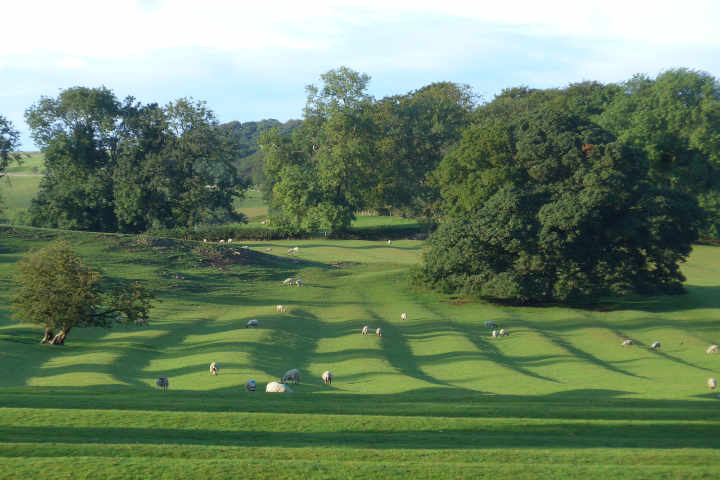
As we travelled up from the Midlands, it was great just to see hills again. And as we wandered around the grounds on the evening we arrived, we couldn’t quite believe how beautiful the setting of YHA Ilam Hall was. A backdrop of high peaks, rolling pasture grazed by sheep, magnificent ancient oak and copper beech trees, a picturesque bridge, a hidden staircase, stone grottoes, a Paradise Walk along the sparkling River Manifold … The swallows – some nesting in the hostel entrance hall – swooped, catching the evening flies, bats fluttered round the church tower, and rabbits dashed into the long grass. The children enjoyed Pooh sticks, hide and seek, and running endlessly in circles around the rose bed in the Italian garden.
The building was impressive too. My daughter and I speculated about the conversation between the owner, Jesse Watts Russell, and his architect, John Shaw: “I’d like plenty of arches and mullioned windows please. Oh, and lots of chimney pots. Big ones, small ones, twisty ones. Preferably no two the same.” We were spoilt for choice for places to have a picnic: from benches along the terrace under the arches of the loggia to the socially-distanced tables and chairs in the garden of the on-site National Trust tea room.
The most obvious place to go first was Dovedale, with its limestone cliffs and famous stepping stones, only a mile and a half’s easy walk from the hostel. The River Dove has attracted visitors since the 17th century, when Izaak Walton fished there and wrote The Compleat Angler. On the mid-August day we went the valley was busy, rather like a day at the beach. But past the stepping stones it was quieter, and we watched the dippers feeding in the stream below the marjoram and harebell-covered slopes. After Ilam Rock we headed off along a randomly-chosen public footpath, and had one of those unplanned experiences that are often the thing one remembers most from a holiday: an encounter with a friendly, curious group of alpacas and a spotty goat.
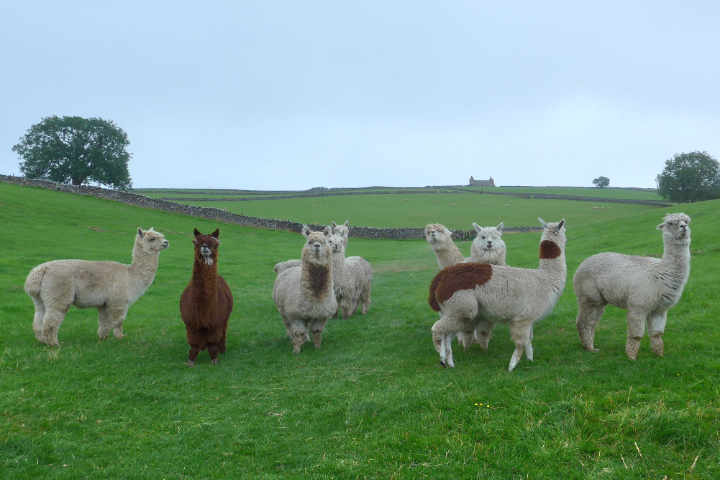
Half way through the week we visited the nearby town of Ashbourne to stock up on children’s books and sample a Bakewell tart. We also took in the Neolithic stone circle and earthworks at Arbor Low, imagining it as the setting of the ‘Standing Stones’ chapter of Stig of the Dump by Clive King. But mostly our car stayed in the car park as there was more than enough to do in the hostel grounds and the countryside around.
We supplemented our Ordnance Survey Explorer map (OL24) with some invaluable National Trust walking route cards from the hostel reception (£1 each). The instructions were clear, so we never got lost, and we could show the routes to the children, which gave them a sense of progress and encouraged them to keep going. Our most ambitious and rewarding walk was the seven-mile-long ‘Manifold Tops’, a circular route around the hills above the River Manifold. The card said: ‘Wonderful views, but quite a challenging walk’. We wondered if it would be too much for an eleven-year-old and an eight-year-old, but they rose to the occasion. There was so much of interest on the way – including the atmospheric ruins of Throwley Old Hall and the ancient, gnarled ash trees tumbling down the hill from Castern Hall – and we’d taken sufficiently motivating snacks. It rained intermittently: at one point we had to climb on to a parapet to cross the flooded Weags Bridge, but in compensation the cloudscapes were spectacular. We saw peregrine falcons hovering above Castern Wood Nature Reserve, and what I first thought were giant tapirs but turned out on closer inspection to be black and white Belted Galloway cows.
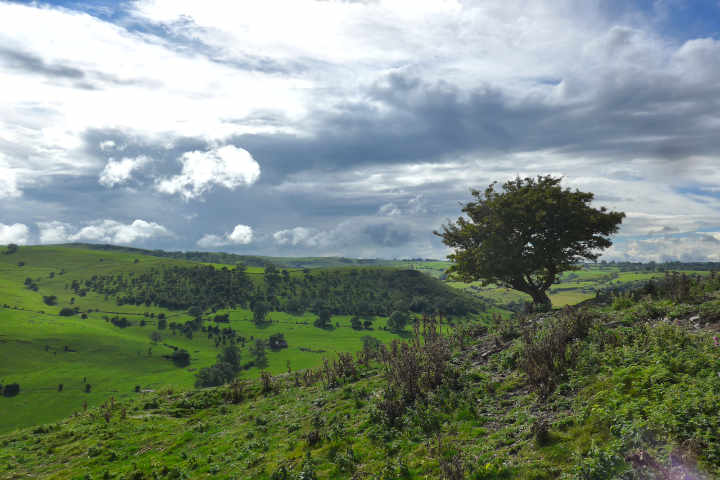
The hostel was nearly booked to capacity, with about 100 guests, but it seemed quiet because of the communal facilities only the lounge was open. The room was big enough to accommodate several small groups, with two metre distancing markings on the floor. The other safety precautions in place included plastic screens in reception, a one-way system, extra cleaning routines, hand sanitising stations near doors, and a request that adult visitors wear masks indoors. Everyone had an en-suite or allocated bathroom. We felt that everything possible had been done to keep visitors and staff safe.
On the catering front, we did cope without the kitchen. After our longest walks we treated ourselves to excellent stone-baked pizzas from the hostel kitchen, or visited the National Trust tea room. Otherwise we ate fruit, nuts, oatcakes, cereal bars, and a miscellany of long-life food, mainly tins containing everything from stuffed vine leaves to soup. Cold rice pudding is actually not too bad.
Our daughter was so sad to leave YHA Ilam Hall that the morning of our departure we had to go round saying ‘goodbye’ to all her favourite places and vowing to return. After a long period of enforced monotony, every day of our trip brought new sights and adventures. We were all so glad to be out in the world again.

